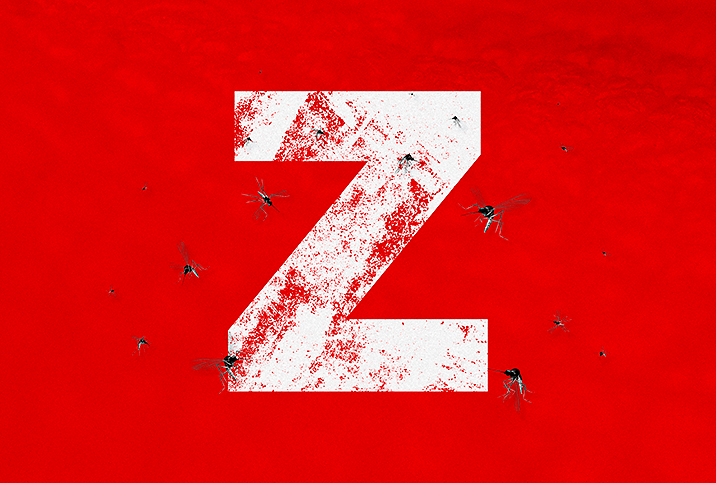It's Flu Season: Now's the Time for Your Vaccination

"I'm a pretty strong advocate of vaccinations across the board," said Norah Oates, a pediatrician based in the New Orleans area. "The flu vaccine is obviously an annual vaccine that gets adjusted with every year, depending on strains going around the world. This particular year I feel very strongly about the flu vaccine for a couple of reasons."
Many people are probably tired of reading about vaccines and the inevitable ensuing vaccine confusion. But the flu vaccine is relevant for unique reasons this year.
"We've spent the last 18 months in mitigation mode of COVID-19, and so between social distancing, mask-wearing and remote learning, not only did we mitigate [the virus] to some degree—though not as effective as we might have liked—but we really mitigated the prevalence of flu in the last season," Oates continued. "In fact, the flu last season really was nonexistent, which has all been well and good for lowering the frequency of an infectious disease, however, the general question becomes, for this season: Is our community as well-prepared for the flu?"
As a community of potential patients and the eventual beneficiaries of all medical research, we are, theoretically, prepared. However, there is still some personal responsibility required to turn theory into reality.
The influenza influences
Though the flu vaccine represents about 75 years of successful inoculation against the potentially deadly disease, there are some unique considerations that have become prominent in the past few years.
"In fact, the general population's immunity has probably waned somewhat to influenza, and for that particular reason it's more important than ever that all individuals get vaccinated if they can," Oates said. "So, really, we've done something unusual, which is to take the flu out of the equation for a season, and we're waiting to see what comes next. Really, the only response to this that we can control is to make sure that as many people get vaccinated against the flu as possible."
Oates mentioned the flu vaccine gets revised on a global scale in order to account for changes to the international flu population annually. This means COVID-19 vaccines will also eventually reach this point, where the medical community can anticipate and preemptively inoculate against new strains, she said.
'The general population's immunity has probably waned somewhat to influenza, and for that particular reason it's more important than ever that all individuals get vaccinated if they can.'
The realm of pediatric care is uniquely affected by coinciding illnesses, Oates said, pointing to trends from her own area of southern Louisiana.
"We had a number of children who were co-infected with respiratory syncytial virus (RSV) and COVID-19, and those children were sicker," she said. "We had more hospitalizations and we had more morbidity and mortality in that setting. Kids are unique in that they often experience two respiratory viruses at the same time. That was not a good combination."
Oates emphasized the importance of considering the potential for multiple coexisting infections when it comes to the care of children and other potentially vulnerable population groups.
"We do not have vaccines against RSV currently and we don't have [approval for] a COVID-19 vaccine for young pediatric patients under the age of 12 at this point," she continued. "So, all we have is the flu vaccine—and we have a vaccine that goes from six months and older," Oates said. "For that particular reason, to avoid coinfection, it makes total sense to get the flu vaccine in as many pediatric patients as well as across adult lines."
Obstacles to information
Simultaneous infections aren't the only overlapping issues on people's minds as fall and winter loom.
"People are fearful that the flu vaccine may interfere with their COVID-19 vaccine," said MarkAlain Dery, D.O., an infectious disease expert who is also based in the New Orleans area. "Which is definitely not the case. That's scientifically shown, no 'prediction' necessary."
Dery also said people can conveniently time their flu and COVID-19 shots together in the same appointment without fear of undesirable consequences. For people with busy schedules or other challenges getting in the way of health appointments, this makes it easier to stay inoculated against all of this winter season's major health risks.
"You could actually get your COVID-19 vaccine and flu vaccine on the same day at the same time, and it will be fine," Dery said.
Intersecting vaccine paranoia
Despite the possible threat of coinciding infections, talks of a "twindemic" may be more hyperbole than a health concern. The most clickable vernacular may help get the point across about vaccine importance, but it's also important to consider how much of a shot in the dark predictions for flu season are this year.
"It's catchy and it gets the point across," Dery said. "Could there be a 'twindemic?' Sure, there could be. And, could there not be? Yeah, there could not be. We don't know how these things really work until after they manifest themselves and we can analyze the data. You can take guesses, sure. You can guess that it's either going to be a good season, a mild season or a bad season, and there's a 33 percent chance you're going to be right in one of those categories. So, those are pretty good odds."
Others point to exhaustion as a factor in health-based decision-making.
"There has been slightly less preventative care, just in general, because of the COVID-19 experience and fewer families have come into the [doctor's] office," Oates said, adding that fatigue about the vaccination question has led some families and individuals to pick and choose between when and which vaccines they and their families will receive, "When in reality the best and most prudent plan is obviously to obtain both."
A lack of academic and scientific literacy, combined with a lack of human interest, leads many people to consume hearsay over information and to turn a blind eye when presented with actual facts.
Why do Americans make such decisions in times of crisis? What drives people to underestimate the risk of infection? Dery, who also has decades of experience working against misinformation concerning HIV and other diseases, said the rapid spread of misguided messages plays a big part.
"Misinformation moves through the infosphere at R-naught the sixth—six times the rate as real information," he said. "That's largely due to the fact that real information is held behind paywalls or [in] scientific articles. It's very not sexy. To get the information, you kind of have to have an advanced degree to understand what they are saying."
Americans fight an uphill battle against misinformation and disinformation because there are economic, class and cultural components working against them, Dery concludes. He pointed out that a lack of academic and scientific literacy, combined with a lack of human interest, leads many people to consume hearsay over information and to turn a blind eye when presented with actual facts. This is especially true when those actual facts are often presented in duller or more difficult-to-digest vernacular, and are often blockaded behind academic or financial lines many undereducated or underfunded people will not cross.
"Misinformation, that's sexy shit," Dery said. "That's clickable."
Overcoming our obstacles
It's mid-October at the time of this writing, so what does that actually mean for your vaccination timeline?
"We recommend that individuals get the vaccine in September and October, ideally the month before flu season," Oates said. "If it's a child receiving the vaccine for the first time, it's a two-vaccine series with one month in between."
For individuals who fail to get their vaccines in time and end up becoming infected with either flu, COVID-19 or both illnesses, the consequences are not likely to be pretty. Dery laments the individual cases he has observed in recent months where people have become infected with COVID-19 alone in the absence of inoculation.
"I legitimately feel sorry for them. I really do," Dery said.
He described scenes similar to those depicted by physicians and hospital workers around the country—intubated COVID-19 patients begging for a vaccine they had previously maintained reservations about. Dery said they all came to identify their horrible mistake. The thought of that mistake being doubly horrible due to a secondary infection is tragic to imagine.
Here are the current CDC recommendations for having a flu shot and getting a COVID-19 booster shot.


















